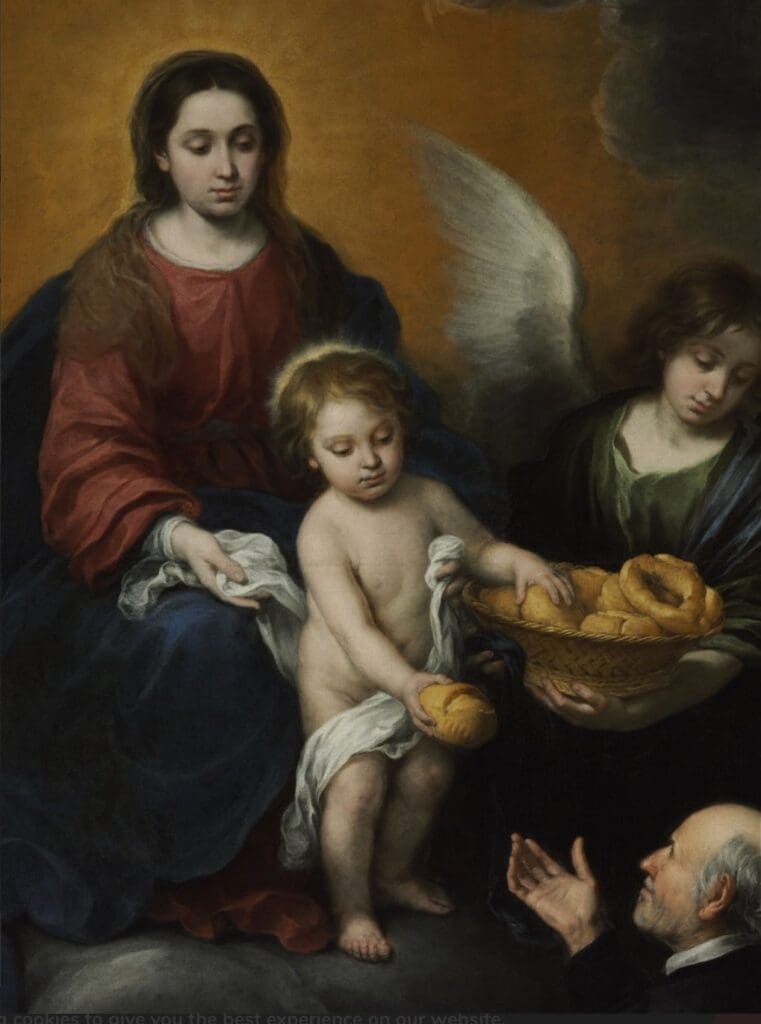During his recent “Address to the Participants in the Social Week of Peru,” Pope Leo made some observations well worth noting: “Let us understand that all social action of the Church must have as its center and goal the proclamation of the Gospel of Christ, so that, without neglecting the immediate, we always remain aware of the proper and ultimate direction of our service. For if we do not give Christ in his entirety, we will always be giving extremely little.”
That’s already a very useful clarification. But he added: “Dear brothers and sisters: it is not two loves, but rather one and the same, that moves us to give both material bread and the bread of the Word that, in turn, by its very dynamism, will give rise to hunger for the Bread of Heaven, which only the Church can give, by the mandate and will of Christ, and which no human institution, however well-intentioned it may be, can replace. And, for our part, let us not forget the words of the Apostle of the Gentiles: ‘Let us not grow tired of doing good, for in due time we shall reap our harvest, if we do not give up.’” (Galatians 6:9)
I cannot tell you how refreshing I find it to read this from the Holy Father. In the first months of Pope Leo’s pontificate, there has been a pronounced Christocentric vision of our faith, articulated clearly and with evangelical vigor. And it is not confined to the spiritual life of the Church but, as the above quote makes clear, also at the heart of the Church’s charitable work.
For many years, I worked at the U.S. Conference of Catholic Bishops engaged in public advocacy for the Church’s charitable work. I’m proud of our efforts, and yet there was always the haunting concern that the goal of the work was “extremely little” compared to the real mission of our faith: salvation.
Our work was about creating space for the Church to compete with other non-governmental organizations (NGOs) or with the strong arm of government itself. This is a worthy goal. Millions of poor and marginalized have been served and continue to be served by the generosity of the Church. The value of this should not be dismissed. And yet, if we truly believe the Nicene Creed, it’s extremely little compared to eternity, and the Holy Father’s words should be a call to reexamine how the Church understands her mission in society as a leaven for the common good.
The common good is not just material well-being: food, shelter, jobs, physical and mental health, and so forth. All of this is good and should be part of the mission of the Church as an agent of charity. And yet the ultimate common good is that which we will all face one way or another in the coming years (for some tomorrow, for others seventy years from now, but it is coming for all of us), which is our eternal destiny. Anything short of that consideration, albeit important, is extremely little.

The work of so many Catholic charitable organizations, as well as the public advocacy work of the USCCB, can sometimes be shortsighted. I can’t tell you how many letters to Capitol Hill or the Administration I either drafted or edited that read like any other NGO. Yes, Members of Congress are not especially concerned about the Church’s eschatological mission, so it perhaps was not appropriate to lead with that sort of language. But to intentionally ignore the salvific purpose of the Church’s work in our communication seemed to be a failure to advance the Church’s essential mission.
The purpose of the Church is to be united to Christ for the salvation of souls, first our own and then to aid others on their own path. The charitable work of the Church falls under that but is deficient if not united with salvation.
For if we do not give Christ in His entirety, we will always be giving extremely little.
From my experience working deep within the bureaucratic Church, the idea of giving Christ in his entirety was not a focus of our work. It’s hard to say if it was even an afterthought.
I wonder how things would have been done differently during my time at the USCCB had I truly worked to give Christ in His entirety. I know my work would have been different. Again, I do not wish to minimize the good that many of us tried to do, but it was extremely little compared to the proper and ultimate direction of our service.
Sometimes I wonder if much of the public advocacy work of the USCCB is a fool’s errand, or a misguided attempt to pursue charitable work without Christ. I don’t think so, but it’s a question that should be more seriously considered by the bishops. There is a bureaucratic gravitational pull within the USCCB that discourages rethinking how things are done and why they are done. At best, this creates inefficiencies; at worst, it undermines the work.
The Church is not simply an NGO, as Pope Francis famously said. She is the mystical body of Christ. She gives bread to sustain the body but, more importantly, she is the source of the Bread of Eternal Life, the Bread of Heaven.
Advocating for religious liberty, for charitable services, social justice, even the pro-life work of the Church is all extremely little if not tied to the salvific mission of the Church. It is argued that all of that implicitly comes from and points towards Christ, but I am not so sure.
Ideally, yes, but the ideal is not necessarily the reality. I think the Church would be better served if the connection between her charitable work and her public advocacy was more explicitly connected to the proclamation of the Gospel of Christ.
For if we do not give Christ in His entirety, we will always be giving extremely little.










